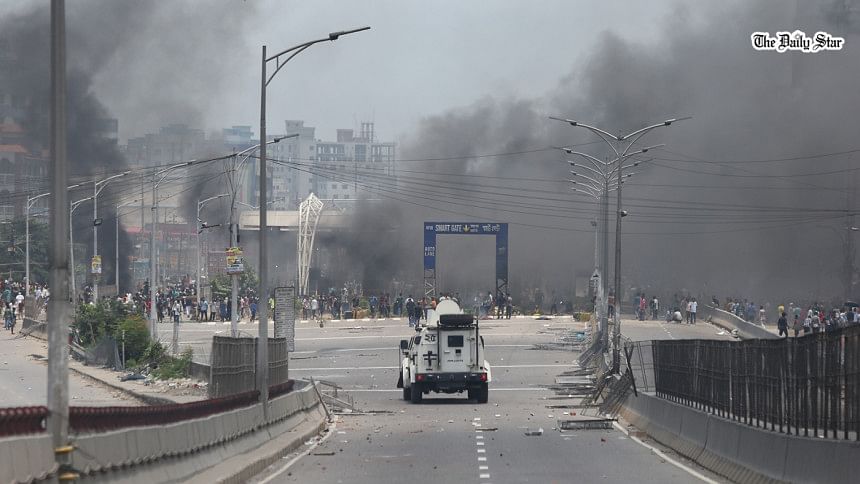Death penalty may hinder UN support: experts

No United Nations body will be able to assist Bangladesh in prosecuting those responsible for the brutal crackdown on the July uprising unless the trials adhere to international legal standards, two eminent lawyers said yesterday.
Supreme Court advocate and Bangladesh Legal Aid and Services Trust (BLAST) honorary executive director Barrister Sara Hossain and fellow SC lawyer Rashna Imam made these remarks at a discussion organised by Jatiya Nagorik Committee at Jatiya Press Club.
The discussion, titled, "UN Fact-Finding Report: Analysis of the July Killings -- Responsibility and Justice," highlighted concerns over judicial transparency and international cooperation.
We understand the international debate on the death penalty, but the people of Bangladesh have endured extreme brutality. A mere prison sentence or fine is insufficient justice.
DEATH PENALTY HURDLE
Sara Hossain emphasised that while the UN has not publicly disclosed the names of perpetrators, it has expressed willingness to share this information with Bangladesh's judicial system, including the International Crimes Tribunal (ICT), provided the trials meet international standards.
"A transparent trial is one that is conducted in full compliance with international law," she said. "A critical issue here is the presence of the death penalty in our legal system. If capital punishment remains, the UN will be unable to cooperate."
She questioned the assumption that Bangladeshis broadly support the death penalty, saying, "We have never held a referendum on this issue. If the people want to retain it, they must also accept the consequence -- limited global support in ensuring justice."
Sara Hossain further warned that bypassing international legal norms could have long-term repercussions.
"If we insist on our current approach without external assistance, will we be able to sustain these trials? Or will we see a scenario where, years later, another regime overturns these proceedings?" she asked.
Referencing the protracted struggle for justice following the 1971 Liberation War, she said, "One major reason justice was not fully served is our failure as a state to uphold international legal standards. If we want to break from past practices, we must reconsider whether capital punishment is the best course of action."
Meanwhile, Rashna Imam said key amendments were made to the ICT Act, particularly in evidence admission, to align it with global norms.
However, she said, "One crucial issue remains unaddressed -- the presence of the death penalty. Neither the interim government nor public discussions have confronted this reality."
She said unless Bangladesh abolishes or imposes a moratorium on the death penalty, the UN and European Union will not provide crucial evidence or legal support.
"During the Awami League's tenure, the ICT process faced widespread criticism. To avoid a repeat, we need international cooperation," she said. "The UN has made it clear they will not share evidence if trials could result in execution."
She also cautioned against rushing the judicial process, pointing to past mistakes.
"The previous government tried to complete war crimes trials within two or three years, leading to significant procedural flaws. We must not repeat that."
A critical issue here is the presence of the death penalty in our legal system. If capital punishment remains, the UN will be unable to cooperate.
'JUSTICE MUST REFLECT PEOPLE'S DEMANDS'
Despite concerns from legal experts, Jatiya Nagorik Committee member secretary Akhter Hossen said those responsible for the July killings must face the highest penalty under Bangladesh's laws.
"We understand the international debate on the death penalty, but the people of Bangladesh have endured extreme brutality. They watched their brothers gunned down in their homes and fired upon from helicopters. A mere prison sentence or fine is insufficient justice," he said.
Akhter said while international legal standards are important, they should not override the people's demand for justice.
"We urge the government to engage with the UN, EU, and International Criminal Court to explain Bangladesh's unique circumstances. The people's expectations must be clearly communicated."

 For all latest news, follow The Daily Star's Google News channel.
For all latest news, follow The Daily Star's Google News channel. 



Comments